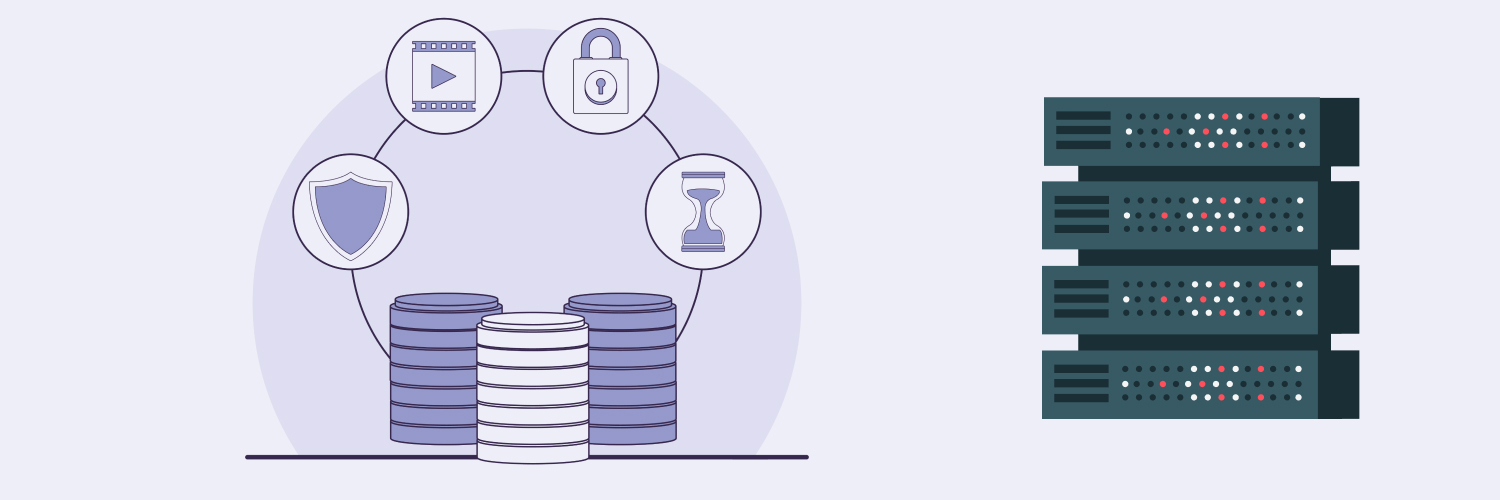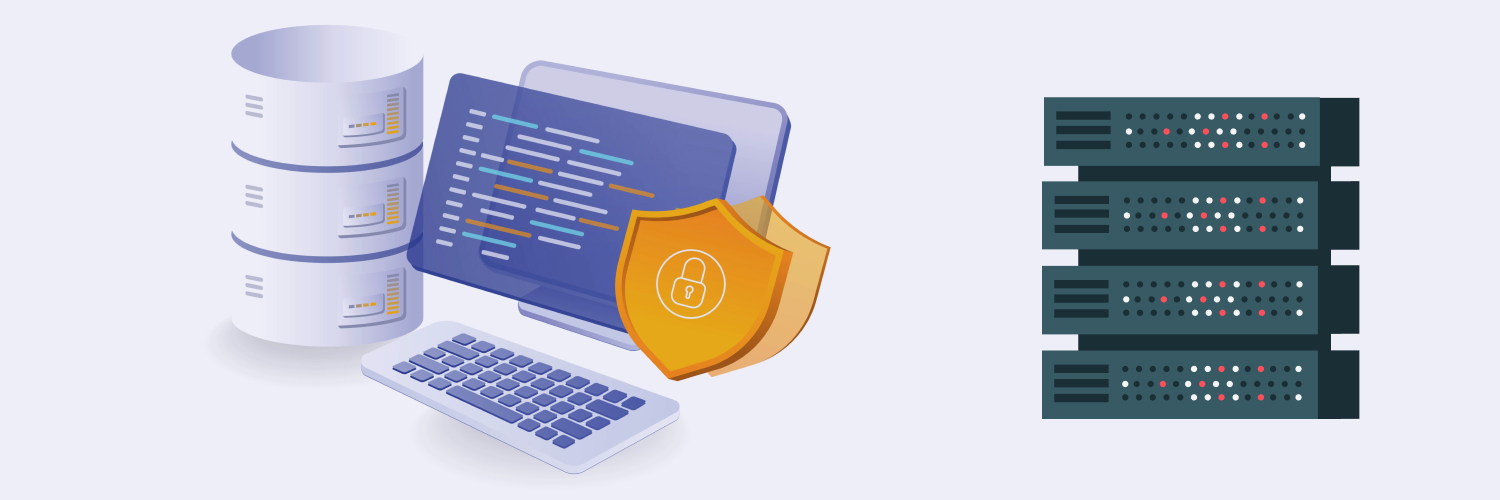Proxy Pools Explained: What They Are and Why You Need Them
The right type of proxy can make an incredible difference in the way you handle website automation and web scraping. A proxy pool is one example of a versatile and highly effective resource that can offer a number of benefits over other types of proxies. In short, a proxy pool is a large and diverse group of proxies that can carry out the web operations you desire in a short period of time.
We have created this comprehensive guide to help you understand a proxy pool and why it matters. Though there are various applications for an IP proxy pool, our focus is on the benefits of using one for web scraping and similar activities.
What Is a Proxy Pool: How to Define a Proxy Pool

A proxy is a tool designed to act as an intermediary between your device and the website you are requesting to access. It allows you to visit the website without the destination website learning your true identity or location. To achieve this, your IP address is blocked from the destination website. A proxy pool takes this one step further.
A proxy pool is a grouping of proxy servers that function as a pair. Instead of just having a single or individual proxy server, a proxy pool involves multiple proxy servers that rotate as they route web traffic. To get the same results manually, you would have to switch proxies every time you wanted to visit a destination website, a process that would take a long time. A proxy pool, instead, transmits your requests through several proxies, aiding in overall security and protection.
In a traditional proxy setup, each proxy has its own IP address that is shared with the destination website (instead of sharing your personal IP address). As an individual proxy server, that server will have one IP address unique to its location. If you were to use several individual proxies, you would have that many specific IP addresses to use.
A proxy pool, instead, has multiple proxy servers that have a single entry point for each user. In this situation, it does not connect directly to the target server. Instead, it will send your request through one of the numerous proxy servers within the pool before forwarding it to the destination website.
The proxy pool has a system that determines what proxy is used to send your request. This is done based on the specific needs of that request. For example, when you use your entry point into the proxy pool by sending a request, the system automatically assigns a specific IP to tackle the request and get the information you need.
Proxy pools can be very large or narrow, depending on the system. No matter how large the proxy pool is, each user has a single entry point, but the number of entry points will change depending on location and session control.
The most important benefit of a proxy pool is that it allows you to send multiple requests at one time. If you want to make hundreds of requests at the same time, the proxy pool system jumps into action and allows that to happen by assigning a different IP address to each of the requests you make. This is done in an IP rotation to ensure ample flexibility and difference from one request to the next.
The Benefits of Using a Proxy Pool for Web Scraping

Whether you use a Scrapy proxy pool or a free proxy pool, the outcome should be the same. You should be able to see a significant number of requests made at the same time with different IP addresses masking your own. There are several benefits to using a proxy pool like this, including web scraping, anonymity, and automation.
Web scraping: One of the primary benefits of proxy pools is that they work very well to facilitate the needs of the user for web scraping. Because it offers automatic rotations of IP addresses, the proxy pool helps web scrapers stay under the radar and be less likely to be caught as a bot on the destination website. It can also help to reduce the risk of an IP ban based on your location or repeated access to the site. With web scraping, accuracy in perception is critical, and doing this from a single IP address nearly always leads to the website blocking you. A proxy pool eliminates that risk because it has more than one IP, making it harder for the website to recognize your actions as web scraping.
Faster data collection: Also notable for web scraping is that proxy pools facilitate a faster process. The data collection can be completed faster because multiple IP addresses are working on the project. IP rotation for web scraping can be critical in capturing information fast enough no matter where you are located, as well as getting around anit-bot detectors, which could otherwise limit your access.
Allows automation: Proxy pools are also beneficial because they allow for automation, making taxes easier to manage across numerous proxies rather than a single proxy. This often is essential to preventing any overload of data resources on a single server. Overall, by automating the process, it is possible to improve the overall efficiencies of web scraping or other tasks you are engaged in at the time.
Anonymity: Perhaps most important is the use of proxy pools for tasks requiring privacy. The proxy pool makes it impossible for your real IP address to be accessed by the destination website. This creates a higher level of privacy while browsing the internet, no matter what tasks you are working on. It prevents websites and other services from tracking where you are located and, as a result, can minimize the number of targeted ads you receive as well.
Getting around geo-blocks: One of the most common reasons to use a proxy pool is to avoid detection. That is critical in situations where your identification could limit your access or experience on a website. Because of the anonymity present, it allows you to access content that could otherwise be unavailable to you due to your location. Your real IP address is hidden, and appropriate location-based IP addresses are used to access the content you desire.
The Different Types of Proxy Pools and Using Them

Various types of proxy pools are available, each of which offers a slightly different service and functionality. Proxy pools can fall into the following categories:
Residential proxy pool: A residential proxy pool only includes residential proxies. The IP addresses for these proxies are in cells or computers in residential locations. They are set by the internet service provider (ISP) and have a specific location, typically within a residential area. These are often hard to detect and have fewer restrictions than others because the request seems to come from the average computer user in a residential area. This tends to lead to trust in the destination website.
Datacenter Proxy Pool: A datacenter proxy pool, or data center IP proxy, is made up of just data center IP addresses. They are typically set up and run by a larger organization, such as Amazon AWS. These proxy pools tend to be somewhat vulnerable to being banned by websites if they are noticed. It is easier to notice them than residential proxies, but they can still be very effective.
Free proxy pool: You may see a public IP pool or free proxy pool out there. This refers to only free proxies being used together. The IP address can be either a residential proxy pool or a data center proxy pool, depending on where the IP addresses are located. In comparing all of the pool proxy options, note that a free proxy pool will be less reliable overall, with the highest likelihood of being detected.
Mobile proxy pool: Another form, a mobile proxy pool, only incorporates mobile IP addresses. When considering reliability and performance, most mobile proxy pools are going to be very strong contenders. It is much harder for a website to recognize a mobile IP address as a bot. Mobile proxy pools are allocated by a mobile version of an internet service provider, also known as mobile network operators.
Mixed proxy pools: Another option that may apply in some cases is the use of a mixed proxy pool, which is comprised of proxies from various areas, including data center proxies, mobile proxies, and residential proxies. This helps create a harder-to-detect functionality for those engaging in web scraping. It has a wider range of IPs allocated to its use.
Best Practices for Using Proxy Pools

An IP proxy pool can be an excellent investment in your project. It allows you to gain the confidence you need to gather data without detection. There are a few factors to keep in mind as you compare services offering them.
Reliability matters: Make sure that the proxy pool provider is reliable, has a strong uptime, and has outstanding proxies. You want to know that the infrastructure can handle your demand and that great customer support is offered. It is often best to choose a proxy pool provider that has a long history of offering these services.
Optimization and configuration: when choosing a proxy pool and then configuring it, be sure it meets your specific requirements. For example, consider how frequently the IP rotation occurs. If you are looking to access content that is limited based on geolocation, be sure the proxy pool you select offers enough versatility in that area. Also, the load balancing parameters that the proxy pool uses should be considered to ensure the best overall performance.
IP health and reputation: Also note the overall health and reputation of the IP addresses being used. It is critical to make sure that those IP addresses have not been blacklisted by the sites you wish to extract data, for example. You also do not want to use a proxy pool that has been associated with malicious activities in the past. That can impact how accessible the IP addresses are now.
Know the rules: Keep in mind that using proxies to access websites or obtain services could be considered a violation of the site’s terms of use. That could mean that if you are discovered, it could shut down your access to those sights. You also want to be sure you know what your rights are from a legal standpoint.
Not All Proxy Pool Options Are the Same

Keep in mind that proxy pools are very loosely defined. Not all will have all geographic locations available to you. Some may also rotate the IP addresses more often than others, improving anonymity in the process. You also want to consider if you are paying for a premium service or a paid IP proxy pool. If so, make sure to justify and use the added features that are available to you. Keep in mind that free proxy pools tend to be highly risky and less effective overall due to the various blocks on them.
Finally, note that if you do not manage your proxy pools properly, you could cause a data leak, which could be a costly mistake. That is why choosing a reputable provider and then working closely to use the tools effectively can be so critical.
Using Proxy Pools for Web Scraping

When it comes time to choose a proxy pool for web scraping, turn to Rayobyte for help. Web scraping, the process of extracting detailed information in real time from websites, often to influence pricing decisions, is highly effective when done through a reputable pool proxy provider.
Contact Rayobyte to find the service that is right for your needs. Choose from a wide range of web scraping tools and proxy services.
The information contained within this article, including information posted by official staff, guest-submitted material, message board postings, or other third-party material is presented solely for the purposes of education and furtherance of the knowledge of the reader. All trademarks used in this publication are hereby acknowledged as the property of their respective owners.






